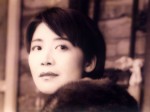New York Times: Misrule of Law
11 11月
原载:http://www.nytimes.com/2013/08/19/opinion/misrule-of-law.html
 XU ZHIYONG, a lawyer for the underprivileged, knew he risked his freedom by challenging the Chinese Communist Party to fulfill its vows to fight corruption and promote the rule of law.
XU ZHIYONG, a lawyer for the underprivileged, knew he risked his freedom by challenging the Chinese Communist Party to fulfill its vows to fight corruption and promote the rule of law.
His fight made him one of China’s best known human-rights advocates, and it has now landed him in prison.
On the evening of July 16, Mr. Xu’s wife, Cui Zheng, came home from work to find her husband, who had already been under house arrest for three months, missing. The police officers who had stood outside the door, enforcing the house arrest, were also gone. Their home had been searched: books were in disarray, computers seized, the lunch she’d prepared for her husband untouched.
At midnight, two police officers delivered a notice: Mr. Xu had been detained on suspicion of “assembling a crowd to create disorder in a public place.” For more than 90 days of his house arrest, no one except Mr. Xu’s family had been allowed to pass through the door of their home. So how could he have committed the crime he was accused of?
I first met Mr. Xu, who is now 40, on a Christmas evening 12 years ago, while he was studying for a doctorate at Peking University Law School. We were among friends in a bar in the Sanlitun district of Beijing; it was noisy, but he and I sat apart in a quiet corner as he told me of his dreams of constitutional government, and his research on grass-roots elections in a small village. He spoke of serving the public good and creating a better society, an ambition he had had since age 14. His brow and eyes radiated sincerity.
I found it hard to imagine how devotion to public service could take root in the heart of a village boy. He tried to explain it in an essay: “After chasing around in the wilderness, and ruminating along rivulets and in snowy wastelands, I finally came to a clear understanding of what would make my life meaningful.”
In 2003, Mr. Xu joined two legal scholars, Teng Biao and Yu Jiang, to petition the National People’s Congress for repeal of the “custody and repatriation” procedures abusively imposed on rural migrants. That year, the three men, joined by a fourth, Zhang Xingshui, also formed a legal-aid organization, the Open Constitution Initiative, or Gongmeng.
Mr. Xu didn’t sit in his study writing reports, and he didn’t carry out his legal aid in a courtroom alone. For a 2005 report, he spent two months in an illegal encampment of impoverished petitioners who had traveled to Beijing to protest local injustices. He was beaten outside the State Bureau for Letters and Calls, where the petitions are filed. His findings helped bring an end to routine beatings of petitioners by official “interceptors” from their native communities. During one attempt to free petitioners from unofficial “black jails” where they were held pending repatriation to their hometowns, Mr. Xu told the assailants who beat him: “Go ahead. I won’t hit back.” In 2009, Mr. Xu was jailed for the first time, for nearly a month.
Rights activists say that a special investigative team has been gathering evidence against him, and was responsible for forcing Gongmeng’s office to close a year and a half ago. They say its landlord was coerced into revoking its lease, and other landlords were blocked from offering it space. Some volunteers and staff were arrested, and Mr. Xu’s young followers were threatened, the activists say.
But Mr. Xu has refused to buckle to pressure — from anyone. In 2011, when fellow dissidents criticized him for quickly concluding that the government was not to blame in the death of a village leader, I implored him: “Can you just not say anything?” That was the only time he lost his temper with me. He said the truth is the truth, and if we kept silent when the truth doesn’t fit our imagination or hopes, then how are we different from what we oppose?
President Xi Jinping has talked of “the Chinese Dream” of a prosperous and harmonious nation. Mr. Xu gave his version of the dream in an interview: “I hope for a free and happy country, where no one needs to go against his conscience, and can find his place based on his abilities and moral character; a simple and happy society that optimizes the goodness in human nature and puts the greatest restraint on evil; where honesty, trust, friendship and mutual assistance are the norm; where vexation and indignation are rare, and a smile of genuine happiness is on every face.”
In a secretly recorded video that went viral this month, a handcuffed Mr. Xu reached out from his cell and said, “No matter what becomes of this society, however crushed or absurd, this country needs a group of brave citizens to stand up and abide by their convictions, turning their rights, responsibility and dreams into reality.”
A few nights ago, I dreamed of my friend. He was wearing handcuffs and dragging himself in a pair of oversized cloth shoes down a long prison corridor. He said, “This is the path a nation must walk toward freedom.”
Hua Ze is a documentary filmmaker and an editor of the forthcoming book “In the Shadow of the Rising Dragon: Stories of Repression in the New China.” This essay was translated by Stacy Mosher from the Chinese.
A version of this op-ed appears in print on August 19, 2013, on page A19 of the New York edition with the headline: Misrule Of Law.
No comments yet